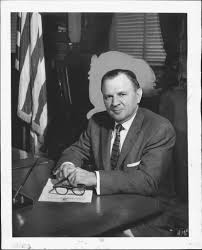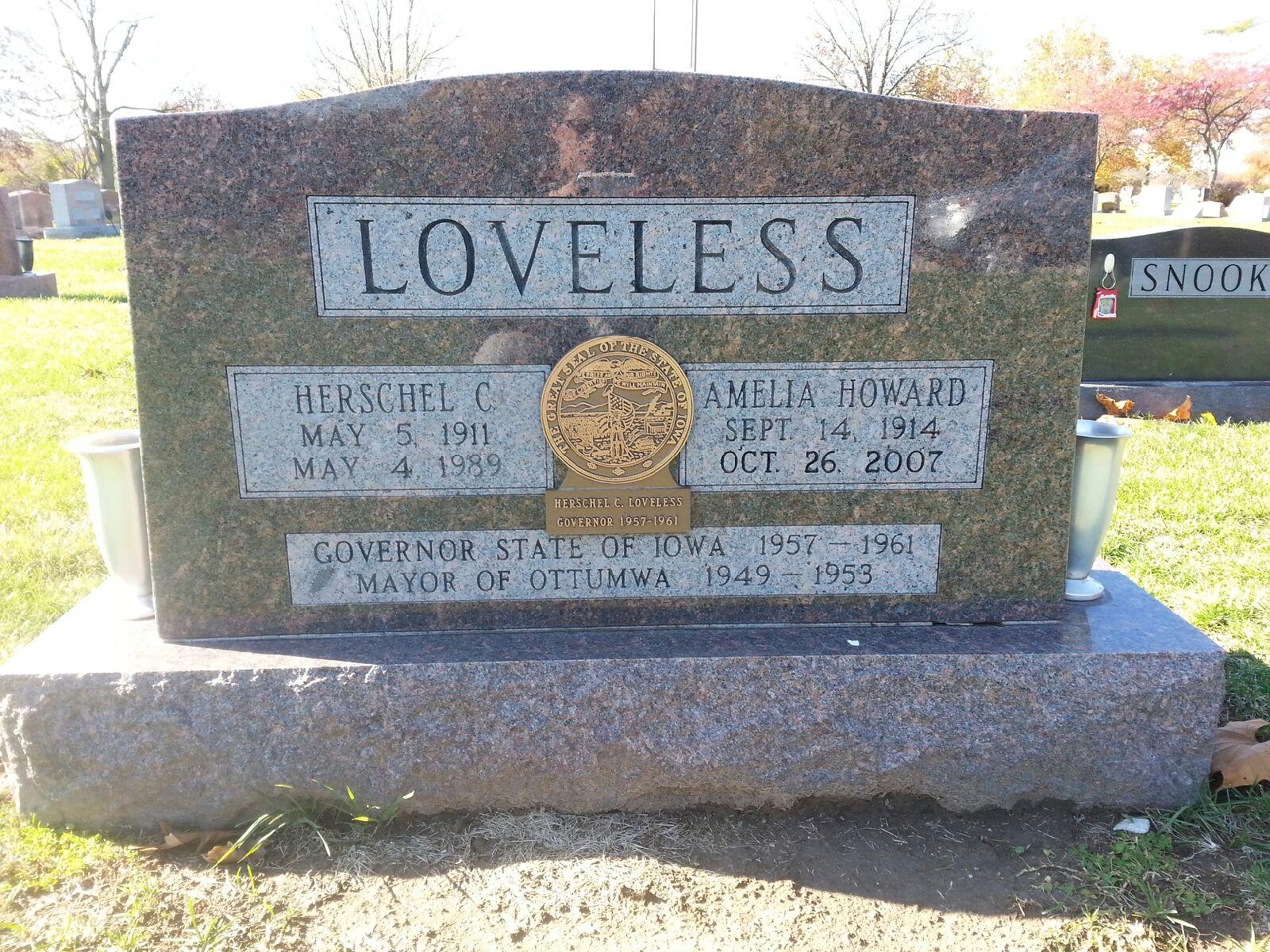Until the 1950′s, Iowa was a virtual one-party state. A Democratic Governor had only been elected three times since the Civil War and while, it was not uncommon for the state to fall into the Democratic column in Presidential elections, it’s predominant winners statewide were Republican. Herschel Loveless had more success statewide than nationally, but he set the winds in motion for a future Democratic revival on both ends. And his recipe for doing so was impressive. He united rural and urban folks, and built the Democratic Party in the Hawkeye State, paving the way for future statewide winners Hughes, Clark, Culver, and eventually, Harkin.
Loveless was a product of rural Iowa. He was born in Fremont but attended Ottumwa High School, graduating at age 16. The Depression sent him all over the mid-west but he returned to Ottumwa and worked a t a meatpacking plant. He learned valuable lessons of dealing with Iowa’s floods by being the city manager of Ottumwa when the flooding of the Des Moines River occurred.
Loveless had been elected Mayor of Ottumwa in somewhat of a power struggle between Local 1 (the unions) and a “Good Government Association” group backed by another faction. Both of his runningmates were defeated. Loveless presided over the fight for a city manager form of government, which he opposed, not wanting to give bureaucrats too much power.
As Mayor of Ottumwa, Loveless presided over the street and development system, as well as putting in place a sewer wall to deal with the Des Moines River. But he also gained significant exposure to state problems by chairing the First Class Cities Division of the Iowa Section of the League of Municipalities.
Loveless first sought the Governorship at 41 and finished with a healthy 48% to William Beardsley. By 1956, he was back and facing incumbent Leo Hough. Agriculture Secretary Ezra Taft Benson had put into place farm policies that were deeply unpopular, and Loveless galvanized both urban and rural voters. Many of those same folks were also unhappy with Beardsley’s hike in the state sales tax and Loveless campaigned on a “hold the line” platform, stating “Iowa is one of the four highest taxed states in the United States,” and asserting that residents lose almost one in ten of their dollars to taxes. He would edge Hough 51-49%, a margin of 29,000 votes.
Loveless would move to repeal that tax in his first term. Yet as the Biographical Dictionary of Iowa notes, he was also concerned with “imbalance” within rural and urban Iowa and he wanted to change that.
The Dictionary said he earned a reputation as a tireless worker who combined fiscal responsibility with leadership on issues such as flood control, mental health, and social services.” Beyond that, he brought much of Ottumwa to Des Moines, at least agenda wise. He would continue his championship of flood control and dam projects. Mental health as well as workman’s comp and minimum wage comp were raised and a teacher’s pension was authorized. He proved enormously popular with the voters and won re-election in 1958 with 54%, carrying 63 of the state’s 99 counties.
Loveless further proved himself a man of the people when the Legislature voted to allocate money for him to buy a bigger car. At that time, the budget for an Iowa Governor’s car was not to exceed $2,000, and Loveless was content using his predecessors Oldsmobile, which was purchased at exactly one penny below. He said the new car he was in the process of buying would be the same as the state patrol (a Ford, a Chevrolet, or a Plymouth).
Loveless gained
national attention
when Nikita
Khruschev visited
the United States.
The plan was for him
to visit an Iowa
farm but Loveless
argued against it,
saying he was “sure
the people of Iowa
will be
courteous…but it
might be a
precarious venture
because of security
and a hazard to
Khruschev,
especially in the
areas of heavy
immigrant
population.”
Khruschev would make
the visit, but Love
less would call out
the Iowa National
Guard for
Khruschev’s
protection.

